
TrojanUV systems play a critical role in municipal wastewater recycling and reuse initiatives around the world
Recycled wastewater provides a cost-effective, local and sustainable water supply for multiple non-potable uses
Wastewater treatment for non-potable reuse involves a series of well-established biological and physical process steps, including filtration and inactivation of microbiological contaminants
Inactivation of microorganisms in the water is the critical last step in the reuse treatment process
Municipalities in arid regions are acutely aware of the need to conserve their communities' drinking water supplies, and one very effective way to do so is by treating and reusing wastewater. Recycled water can be used or sold for a variety of purposes, including recreational and agricultural irrigation, industrial processes, construction, street sweeping, and more.
UV is an effective way to treat wastewater to meet the stringent limits required for reuse. It inactivates E.coli, Cryptosporidium, and Giardia.
Inactivation by UV is a physical process that rapidly affects microorganisms as they pass by ultraviolet lamps submerged in the water. Within only a few seconds of exposure, the DNA of the microorganisms is permanently altered and they can no longer reproduce or infect those coming in contact with the water.
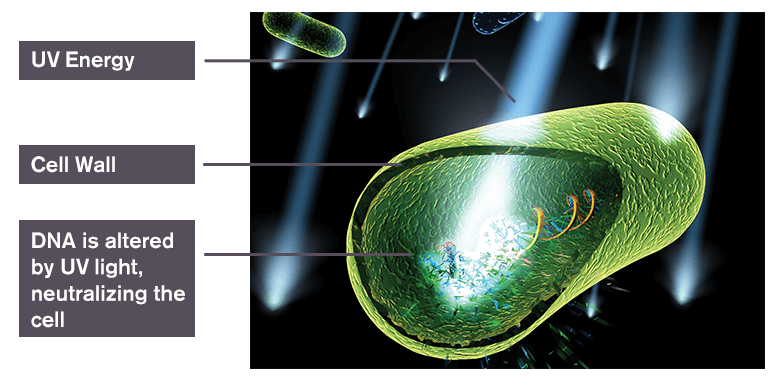
Within only a few seconds of exposure, UV light alters the DNA and RNA of microorganisms, eliminating their ability to reproduce or cause infection.
UV treatment is a simple, effective way to treat water for reuse.
During a multi-year drought, the Lake Arrowhead resort community started looking at ways to further protect, preserve, and supplement their water resources. They chose to install a TrojanUVFit® system at the Grass Valley Wastewater Treatment Plant to treat filtered wastewater to stringent standards for irrigation purposes. This effective process conserves the community’s clean water resources for potable uses and complies with California Water Recycling Criteria Title 22.
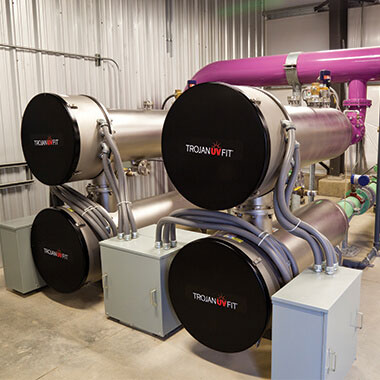
When the Honolulu water recycling facility (WRF) was first constructed, a TrojanUV4000® was installed to help recycle wastewater to Class R-1 reuse standards for various uses such as irrigation. After 15-years, they proactively sought to replace their TrojanUV4000, and selected the TrojanUVSigna® in order to take advantage of TrojanUV Solo Lamp® technology, which reduces both electrical consumption and power costs.
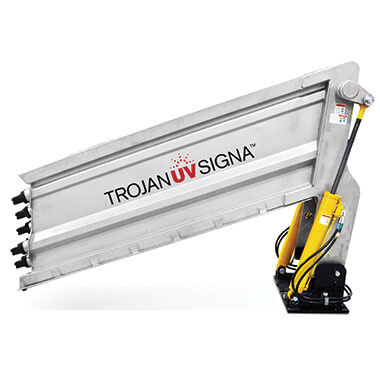
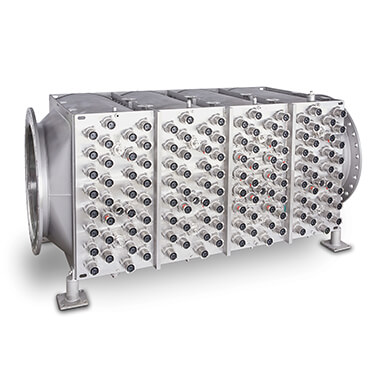
The TrojanUVFlex® is ideal for non-potable reuse and other wastewater applications where the treatment of filtered tertiary effluent is required. It is designed with features to make installation and operation simpler, faster and more cost-effective than ever before. Built on the TrojanUV Solo Lamp Technology platform, TrojanUVFlex allows for energy-efficient high-intensity delivery of UV light in an extremely compact footprint.
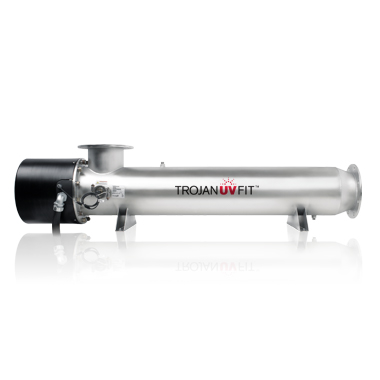
Depending on site and design conditions, wastewater treatment plants producing filtered effluent sometimes prefer a treatment solution using in-pipe (also called closed-vessel) UV chambers. The TrojanUVFit offers an effective, compact, and energy-efficient solution for non-potable reuse.
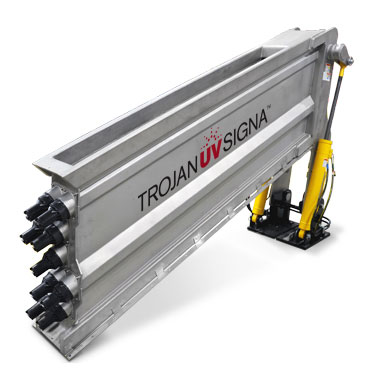
The TrojanUVSigna incorporates innovations, including TrojanUV Solo Lamp® Technology, to reduce the total cost of ownership and drastically simplify operation and maintenance. It is the ideal solution for treatment plants in need of revolutionary UV technology.
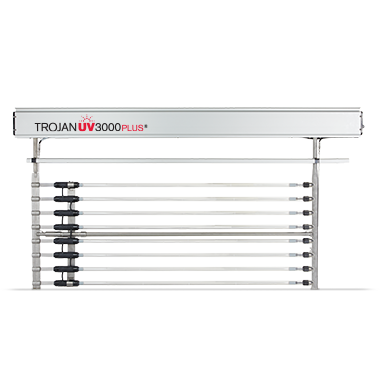
The TrojanUV3000Plus® is one of the reasons why UV is now a favored technology in wastewater treatment. Often touted as a flagship UV system, it has demonstrated effective and reliable performance around the world. In fact, over 2,000 municipalities rely on it to treat over 30 billion gallons of wastewater every day.
Have questions? Call us at 1 (888) 220-6118 or complete the form below.